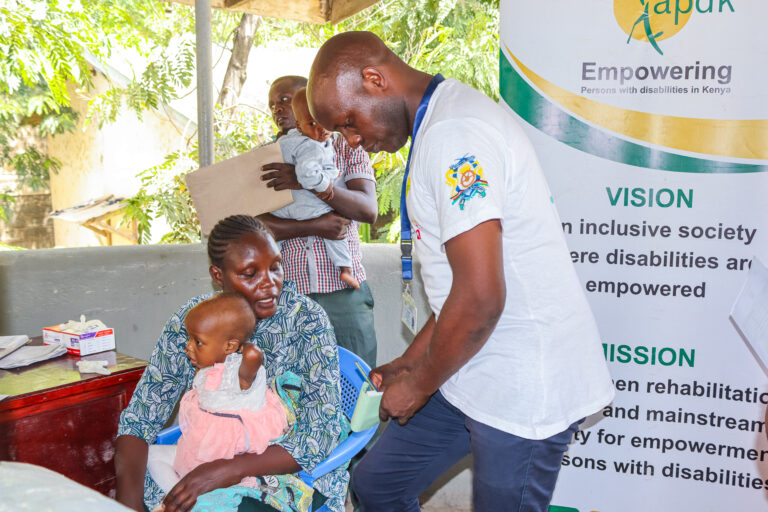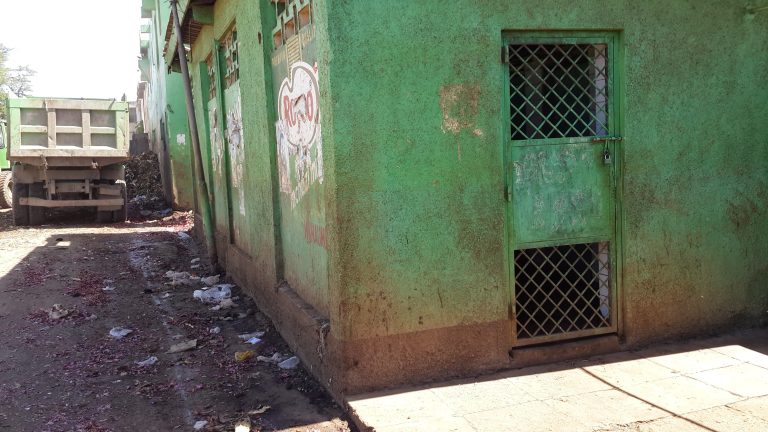Imagine living in a community where clean water and proper sanitation are a luxury.
You must walk miles to fetch water for daily use and use bushes or open fields as toilets. Unfortunately, this is the reality for many communities, particularly in developing countries.

The lack of access to clean water and proper sanitation has dire consequences on the health and well-being of individuals, and it’s time to take action.
Maji Na Ufanisi (MnU), a water NGO based in Kenya, is working towards providing sustainable solutions to clean water, sanitation, and hygiene (WASH) in urban informal settlements. Through its various sanitation projects, MnU empowers communities and improves their health and well-being.
At the community level, MnU works with over 50 Community-Based Organizations (CBOs), forming a large base of the organization’s implementing partners. These CBOs are responsible for managing the facilities using the pay-per-use system, ensuring they remain sustainable and available to the community.
One of the CBOs that MnU works with is the Kaptagat Usafi Group in Kangemi, Nairobi.
This group is responsible for managing the community toilet and shower facility, which has improved the hygiene and sanitation of the area. Before the facility was established, residents had to use the nearby river or open fields as toilets, exposing them to waterborne diseases.
With the availability of the facility, residents now have access to clean toilets and showers, promoting good hygiene practices and reducing the risk of diseases.
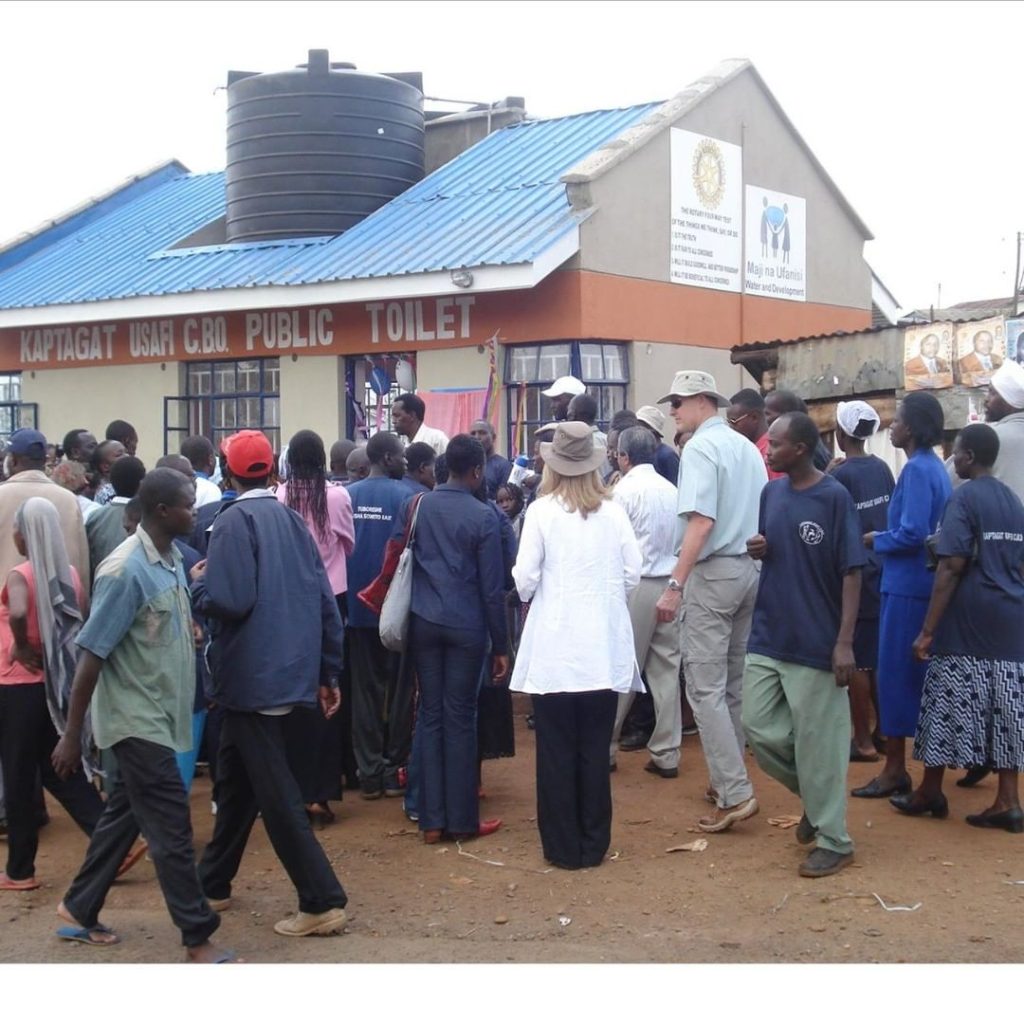
Another CBO that MnU partners with is the Soweto Usafi Group in Kibera, Nairobi. This group is responsible for managing the community water kiosk, which provides clean water to the residents. Before the water kiosk was established, residents had to walk long distances to fetch water from unsafe sources. The availability of the water kiosk has improved the health of the community, reducing the risk of waterborne diseases.
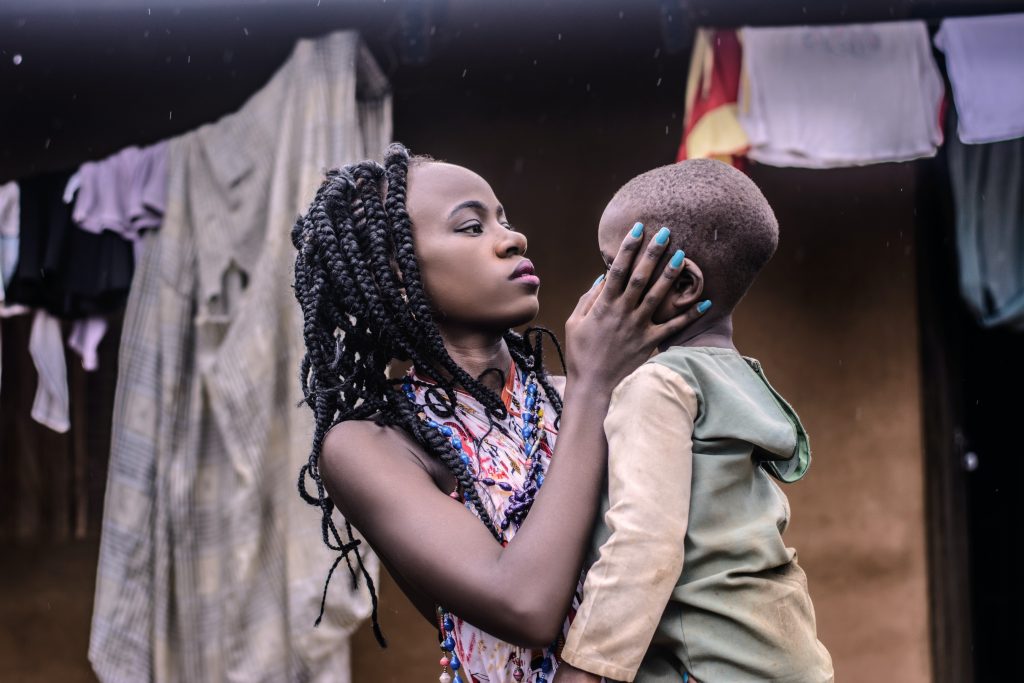
In Muthurwa, Nairobi, MnU partners with the Nairobi Central Business Hawkers Association (NCBHA). This group is responsible for managing the community toilet and shower facility, which has improved the hygiene and sanitation of the area.
Before the facility was established, residents had to use the nearby bushes or open fields as toilets, exposing them to waterborne diseases. With the availability of the facility, residents now have access to clean toilets and showers, promoting good hygiene practices and reducing the risk of diseases.
MnU also partners with the Uvumilivu Usafi Group in Bangladesh, Mombasa County. This group is responsible for managing the community toilet facility, which has improved the sanitation of the area.
Before the facility was established, residents had to use the nearby bushes or open fields as toilets, exposing them to waterborne diseases. With the availability of the facility, residents now have access to clean toilets, promoting good hygiene practices and reducing the risk of diseases.
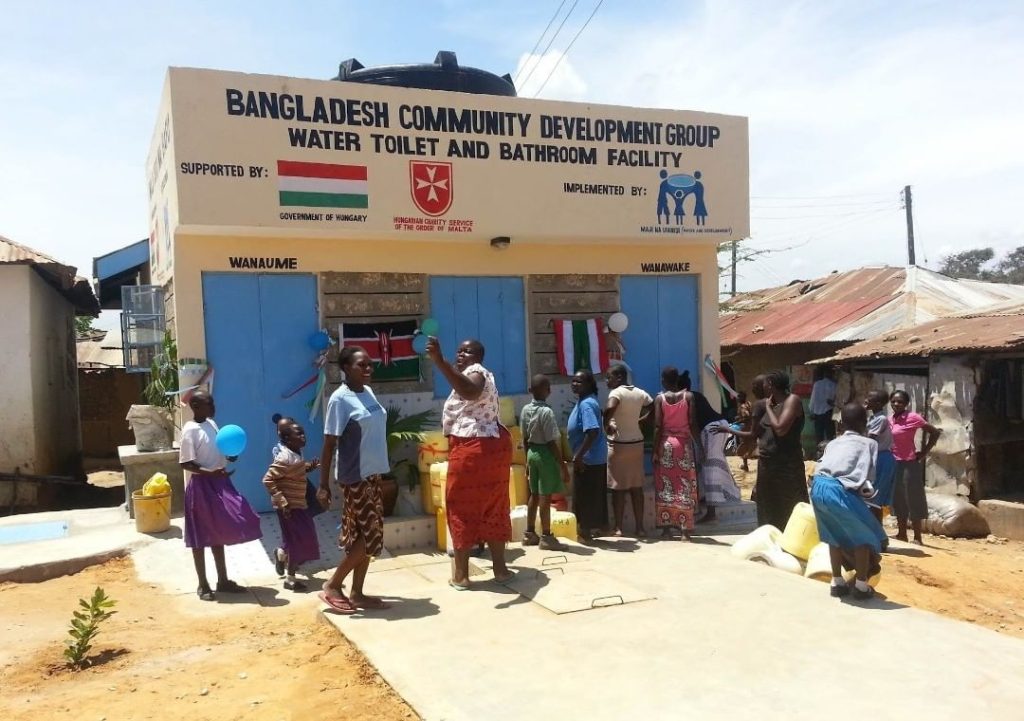
Through these sanitation projects, MnU is working towards meeting Millennium Development Goal 6 of providing clean water and sanitation to all. Access to clean water and proper sanitation directly impacts the economic growth of developing countries.
Countries with better access to water and sanitation have an annual economic growth rate of 3.7%.
World Bank 2021
MnU’s sanitation projects have improved communities’ health and well-being and empowered them to take control of their own sanitation facilities. By using the pay-per-use system, community members are able to contribute to the maintenance and sustainability of the facilities, ensuring that they remain available for future generations.
As MnU continues to work towards providing sustainable solutions to WASH in urban informal settlements, your support is crucial. Your donation can help MnU reach more communities.

